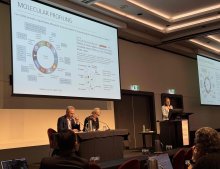
The current state of play in developing liquid biopsies for breast cancer was described at Breast Cancer Trials’ Annual Scientific Meeting in Hobart by Professor Sarah-Jane Dawson from the Peter MacCallum Cancer Centre in Melbourne.
A liquid biopsy is a blood test that looks for materials, such as circulating tumour cells (CTCs) or cell-free circulating tumour DNA (ctDNA) released by breast cancer tumours into the bloodstream.

At the recent Breast Cancer Trials Annual Scientific Meeting in Hobart Professor Shelley Potter from Bristol presented results from the ANTHEM study. This looked at clinical and patient-reported outcomes for women offered oncoplastic breast-conserving surgery vs mastectomy with or without immediate reconstruction.
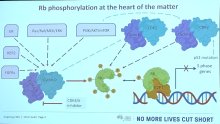
CDK4/6 inhibitors, palbociclib, ribociclib and abemaciclib, are important medicines for treating hormone receptor (HR) positive breast cancer, especially after tumours have become resistant to endocrine therapy (tamoxifen and/or aromatase inhibitors). (Read more about endocrine therapy here.)

Australian doctors Belinda Yeo and Virginia Baird gave a very enlightening and frank presentation on sexual health at Breast Cancer Trials’ recent conference in Hobart, with some excellent advice not only for women experiencing breast cancer but also their doctors.
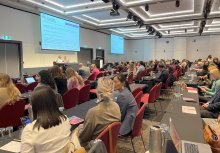
The fear of recurrence is something that most people who have been treated for cancer experience, but it is often the ‘elephant in the room’ when patients meet with their doctors. Doctors don’t want to upset their patients by bringing it up and patients don’t want to look ungrateful for the treatment they’ve had (or they don’t have time to bring it up when they have other questions to get through at an appointment).
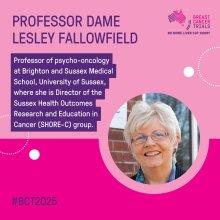
The stress of a being cancer patient is something most people can understand and many of our readers will be only too familiar with this. (For some tips on coping with stress, read more here.)

CDK4/6 inhibitors, such as palbociclib (brand name Ibrance®), ribociclib (brand name Kisqali®) and abemaciclib (brand name Verzenio®) are important medicines for treating advanced HR+/HER2- breast cancer, but they can have significant side effects that impact on your quality of life. Neutropenia (low white blood cell count), nausea and diarrhoea are common side effects which are usually managed by adjusting doses and using anti-nausea and anti-diarrhoea medicines.

Nearly 75% of breast cancers detected in New Zealand women are hormone receptor (HR) positive/HER2 receptor negative. BCAC’s Libby Burgess and Louise Malone, attending Breast Cancer Trials’ recent scientific meeting in Hobart, were pleased to learn that this is an active field of research, with treatment options expanding beyond endocrine therapies like aromatase inhibitors and tamoxifen, and CDK4/6 inhibitors.
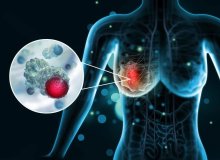
BCAC Chair Libby Burgess reflected on this question after attending the premier international breast cancer research conference, SABCS 2023, in San Antonio Texas last month. Triple negative breast cancer (TNBC) is an aggressive subtype lacking HER2 or hormone receptors. It is the most challenging type of breast cancer to treat, particularly at the advanced stage. However, research over the last 20 years has broadened treatment options and improved patient outcomes.
At SABCS, Libby was…
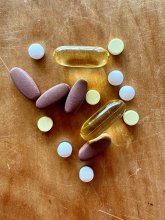
Many patients with advanced breast cancer use herbs and supplements, as well as other treatments like relaxation and massage, to relieve symptoms. However, many patients are taking herbs or supplements that may be harmful or interact with their cancer medications. Most cancer drugs and most foods, herbs and supplements are broken down by the same liver enzyme pathways; a particular example is grapefruit, which therefore interacts with trastuzumab and paclitaxel (among many others). Two…





